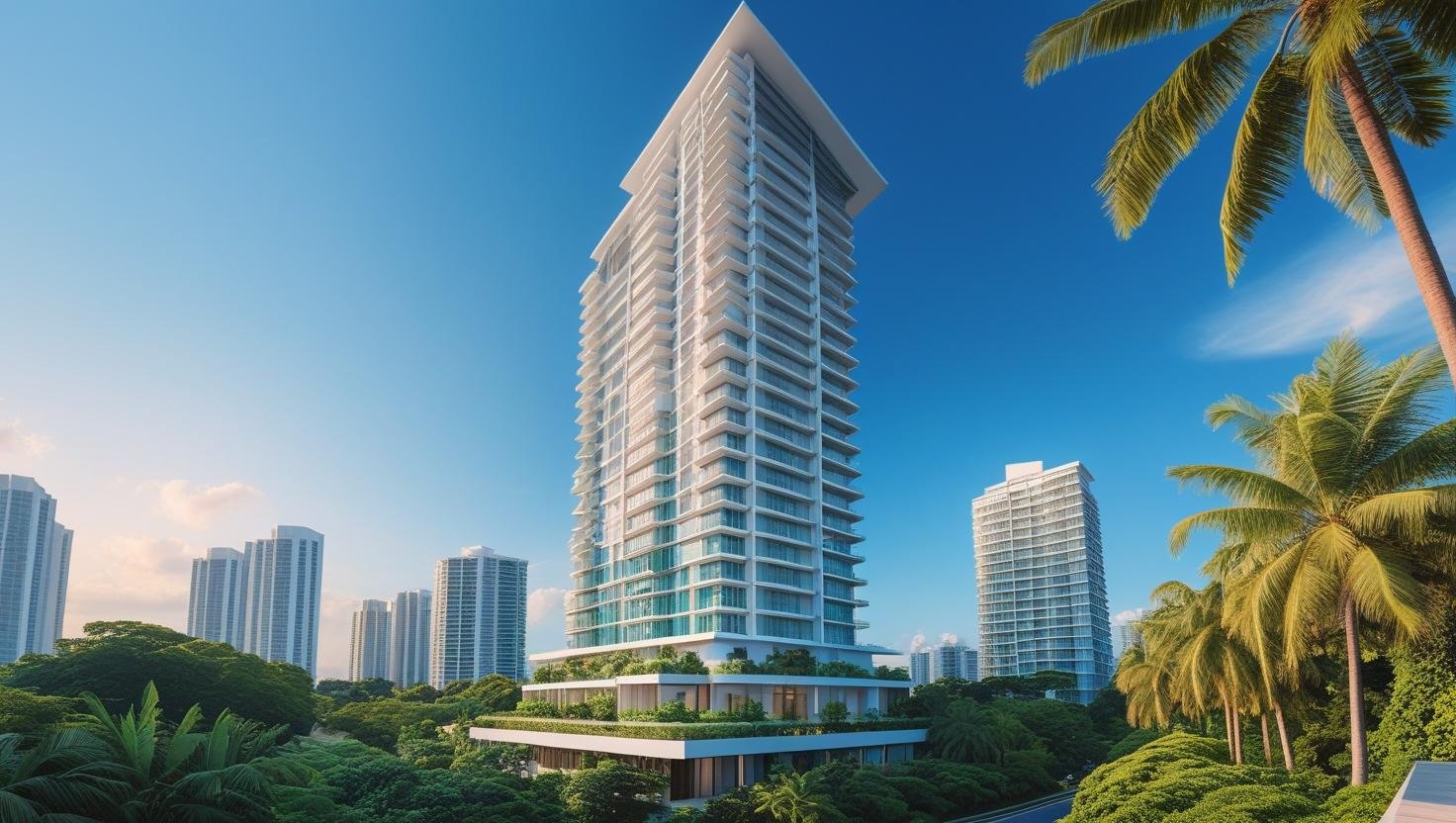Singapore has long been a top destination for global investors, expatriates, and business professionals. With its thriving economy, political stability, and strong real estate market, the city-state is often viewed as a safe haven for property investment. For foreigners planning to buy property in Singapore, securing a mortgage is one of the most important steps. However, the process and requirements can differ significantly compared to local buyers.
This comprehensive guide will walk you through everything you need to know about mortgage options for foreigners in Singapore—including eligibility, loan types, requirements, interest rates, restrictions, and tips to improve your chances of approval.
Why Singapore is Attractive to Foreign Property Buyers
Before diving into mortgage options, it’s important to understand why foreigners choose Singapore for property investment.
- Stable Economy: Singapore consistently ranks as one of the world’s most competitive economies.
- Safe Investment Destination: Strong legal frameworks protect investors’ interests.
- Strong Rental Market: With a large expat community, rental yields remain attractive.
- Global Connectivity: As a business hub, owning property in Singapore is both practical and profitable.
Can Foreigners Buy Property in Singapore?
Yes, but with some restrictions. The type of property foreigners can purchase affects mortgage eligibility and loan terms.
Properties Foreigners Can Buy Freely
- Condominium units
- Private apartments
- Commercial properties
For instance, new launches such as the Rivelle Tampines Showflat are popular choices among foreigners, as they fall under the category of private condominiums that are accessible without special approval.
Properties Restricted for Foreigners
- Landed properties (bungalows, terrace houses, semi-detached homes) require special government approval.
- HDB flats (public housing) are generally off-limits for non-residents, except under certain conditions.
👉 Tip: Since most foreigners invest in condominiums and private apartments, mortgage loans are readily available for these property types.
Eligibility for a Mortgage as a Foreigner in Singapore
Banks in Singapore offer mortgage loans to foreigners, but eligibility depends on several factors:
- Residency Status: Permanent Residents (PRs) often enjoy better loan terms compared to non-residents.
- Income Source: Foreigners employed in Singapore with a valid work pass have higher approval chances.
- Credit History: A clean credit record, locally or overseas, is crucial.
- Property Type: Only eligible property types qualify for foreigner home loans.
Mortgage Loan-to-Value (LTV) Limits for Foreigners
Loan-to-Value (LTV) ratio refers to the percentage of the property price that banks are willing to finance.
| Borrower Type | Maximum LTV Ratio | Minimum Cash Down Payment |
|---|---|---|
| Singapore Citizens | Up to 75% | 5% |
| PRs | Up to 75% | 5% |
| Foreigners | Typically 60%–70% | 30%–40% |
👉 This means foreigners often need a larger upfront payment compared to citizens or PRs.
Types of Mortgage Options Available for Foreigners
1. Bank Home Loans
The most common financing option for foreigners. Banks in Singapore offer two main types:
- Fixed-Rate Home Loans: Interest rate remains the same for a fixed period (usually 2–3 years). Good for stability.
- Floating-Rate Home Loans: Linked to SORA (Singapore Overnight Rate Average) or board rates. Rates fluctuate with the market.
Pros:
- Widely available
- Large loan amounts possible
Cons:
- Stricter eligibility criteria for foreigners
- Higher interest rates compared to citizens
2. International Banks in Singapore
Foreigners may find it easier to apply with international banks that have a presence in their home country.
Examples: HSBC, Citibank, Standard Chartered
- Easier documentation for foreign income verification
- Global banking relationships may improve approval chances
3. Private Lenders & Financial Institutions
Some licensed moneylenders and private institutions offer property financing for foreigners.
Pros:
- Faster approval
- More flexible requirements
Cons:
- Much higher interest rates
- Stricter repayment terms
Documents Required for Foreigners Applying for a Mortgage
To apply for a mortgage in Singapore, foreigners generally need:
- Valid passport
- Employment pass or work visa (if working in Singapore)
- Proof of income (pay slips, tax returns, or employment letter)
- Bank statements (3–6 months)
- Credit history reports (local or overseas)
- Option to Purchase (OTP) agreement for the property
Additional Costs Foreigners Should Consider
When purchasing property in Singapore, foreigners face additional taxes and fees.
Buyer’s Stamp Duty (BSD)
Applies to all property buyers.
Additional Buyer’s Stamp Duty (ABSD)
- Foreigners pay 60% ABSD on residential property purchases (as of 2025).
- PRs pay lower rates.
Legal Fees
For conveyancing and mortgage documentation.
Other Costs
- Valuation fees
- Insurance premiums (fire and mortgage insurance)
Interest Rates on Foreign Mortgages in Singapore
Interest rates for foreigners may be slightly higher than for citizens/PRs.
- Fixed-rate packages: Around 3%–3.5% p.a. (2025 average)
- Floating-rate packages: 2.8%–3.2% p.a., depending on SORA movements
How to Improve Your Mortgage Approval Chances as a Foreigner
- Maintain a Strong Credit Record – Pay bills and loans on time.
- Show Stable Income – Consistent employment increases credibility.
- Consider Joint Application – Applying with a Singapore PR or citizen co-borrower improves approval chances.
- Lower Loan Amount – A higher cash down payment reduces lender risk.
- Choose International Banks – If you already bank with them globally, leverage that relationship.
Alternatives to Mortgages for Foreign Buyers
- Cash Purchase: Some high-net-worth individuals prefer outright purchases to avoid financing hurdles.
- Developer Financing: Some property developers offer installment plans.
- Offshore Financing: Foreign banks may provide loans for purchasing Singapore properties.
Key Challenges Foreigners Face in Securing a Mortgage
- High Additional Buyer’s Stamp Duty (ABSD)
- Stricter loan-to-value (LTV) limits
- Proof of foreign income can be complex
- Fluctuating exchange rates may affect repayments
Tips Before Applying for a Mortgage in Singapore
- Research different banks and compare loan packages.
- Factor in ABSD before budgeting.
- Consult a mortgage broker who specializes in foreigner loans.
- Consider long-term rental yield and capital appreciation of the property.
Conclusion
Singapore’s property market is a lucrative yet highly regulated sector for foreigners. While purchasing property as a non-resident comes with additional restrictions, higher down payments, and steep stamp duties, obtaining a mortgage is still possible through banks, international institutions, or private lenders.
Foreign buyers should carefully evaluate their financial capacity, compare different loan packages, and plan for extra costs like ABSD before committing. With the right preparation and guidance, owning property in Singapore as a foreigner can be a rewarding long-term investment.

